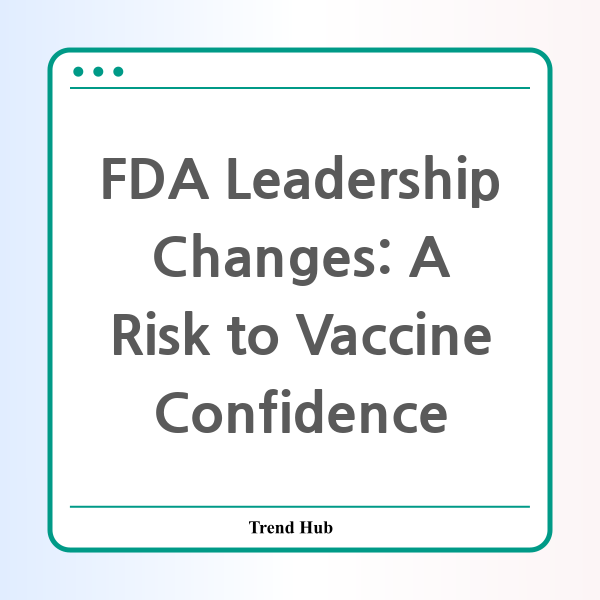* This website participates in the Amazon Affiliate Program and earns from qualifying purchases.

As the leadership landscape within the U.S. Department of Health and Human Services (HHS) shifts, concerns are mounting regarding the future of vaccine confidence and public health safety. The recent resignation of the FDA's top vaccine official, Dr. Peter Marks, has sent shockwaves through the health community, raising questions about the implications for vaccine policy under Secretary Robert F. Kennedy Jr., known for his controversial views on vaccines.
With Kennedy's history as a vocal vaccine skeptic, many are worried that his leadership style may undermine the scientific consensus around vaccines. As he pushes for significant changes within federal public health agencies, including potentially firing thousands of employees in a sweeping reorganization, several analysts and public health experts have voiced serious concerns about the direction in which Kennedy is taking the HHS.
Dr. Marks' departure followed his public critique of Kennedy's approach, stating that the Secretary prioritizes confirmation of misinformation over the scientific evidence supporting vaccine safety. This alarming trend poses a substantial threat to national health strategy and public perception of vaccination, especially amid ongoing measles outbreaks.
Additionally, plans to divert significant resources towards investigating alleged links between vaccines and autism could lead to confusion and further erode trust in vaccination programs. Public health advocates fear that such initiatives could open the door to unfounded claims and misconceptions, potentially causing a backlash against well-established vaccination protocols.
Currently, the landscape has seen prominent health leaders stepping down or being forced out due to their insistence on a science-based approach to vaccine safety. This has prompted fears that the newly appointed leadership may not hold the same values, ultimately jeopardizing the health and safety of the nation.
In light of these developments, it is crucial for the public to stay informed and engaged in discussions about vaccination policies. Education and awareness can help counteract the spread of misinformation and support public health initiatives aimed at maintaining high vaccination rates.
Moreover, maintaining open channels for dialogue between health professionals, policymakers, and the community is essential as the nation navigates through these tumultuous changes. Vaccination remains one of the most effective tools in preventing outbreaks of infectious diseases, and any steps that undermine this critical public health initiative must be scrutinized and challenged.
In conclusion, while the HHS undergoes significant restructuring under Kennedy's influence, vigilance from the public and health experts is necessary to safeguard the integrity of vaccine policies. By fostering a robust discourse around immunization and advocating for scientific evidence, we can work towards a healthier future for all citizens.
* This website participates in the Amazon Affiliate Program and earns from qualifying purchases.